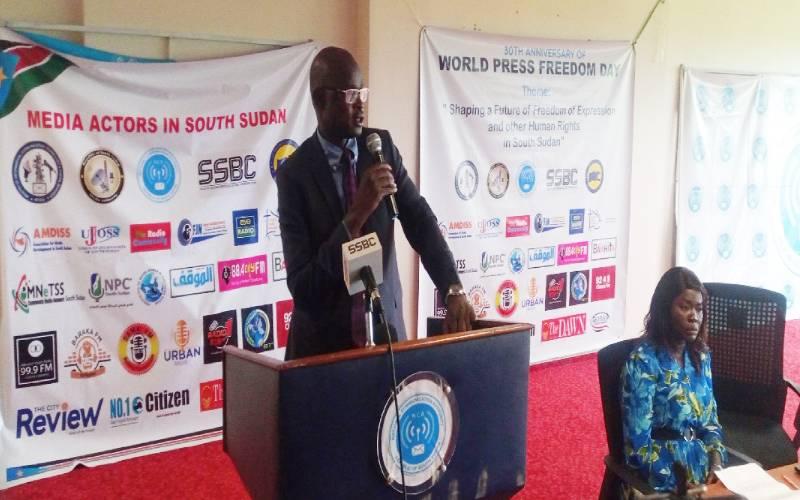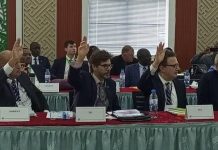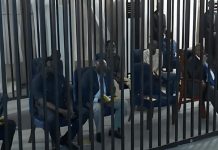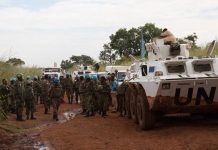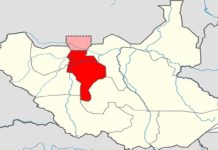Africa-Press – South-Sudan. The Association for Media Development in South Sudan (AMDISS) has urged the media operating in the country t be independent and not to rely on funding from the government and donors.
Koang Pal Chang, the chairperson of AMDISS, said there is a need to “think outside the box” and look beyond donors and the government.
“We can partner with the private sector; maybe something can work for them,” he said.
“With our donors or partners, they are starving the few media houses that they are funding,” he added.
Koang added that sometimes the donors come with $1,000,000, and they give $100,000 to a few media houses and keep the balance.
“This is a reminder that we need to do more as journalists,” he emphasised.
However, he said the objective of journalists is to adhere to the journalistic code of ethics.
“This can only be achieved through training in order to have good content.”
“I wish the government and especially the security personnel would give the media freedom to do their business without intrusion,” he said.
AMDISS said this year’s World Press Freedom Day is being marked without any journalist enduring life behind bars, describing it as good news.
World Press Freedom Day is celebrated annually on May 3 to evaluate press freedom indexes around the world, defend the media from attacks on their independence, and pay tribute to journalists who have lost their lives in the exercise of their profession.
This year’s theme, as defined by UNESCO, is “Shaping a Future of Freedom of Expression and Other Human Rights in South Sudan.”
UNESCO Representative Jasper Okule recapped how the idea for the establishment of a World Press Freedom Day originated in Africa, as stressed by the Windhoek Declaration of 1991.
“The establishment, maintenance, and fostering of an independent, pluralistic, and free press are essential to the development and maintenance of democracy in a nation, and for economic development,” he said.
Okule reminded the stakeholders present at the event that freedom of expression is a driver for all sustainable development goals.
The Chairperson of the Media Authority, Elijah Alier, told journalists that the media is not for lies and misinformation but for disseminating facts and the truth.
Alier said we have a legal and moral obligation to regulate and promote responsible media that protect the territorial integrity and sovereignty of South Sudan from misleading and damaging information that cannot be substantiated.
In her remarks, Lily Adhieu Manyiel, the Press Secretary in the Office of the President, underscored the importance of impartiality.
Manyiel said that since her first day in office, she has always prioritised the need to create healthy working relations between the media and the office of the president.
“I made this move because I strongly believe the government and the media are in one business, and this is the business of informing the public,” she said.
“This is what we always try to achieve in our daily interactions,” she added.
According to Reporters Without Borders (RSF), on the World Press Freedom Index released yesterday, South Sudan made a significant improvement from 139 out of 180 countries in 2021 to 128 out of 180 countries in 2022.
Source: The City Review South Sudan
For More News And Analysis About South-Sudan Follow Africa-Press

